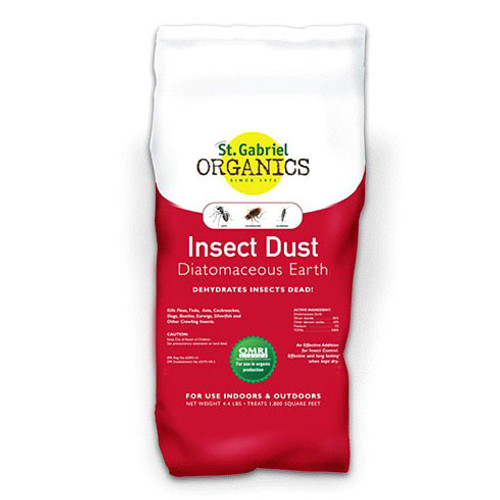Non-toxic pest control encompasses a variety of methods used for managing pests around your garden and home, omitting the use of harmful chemical pesticides. These techniques prioritize environmental health and encourage us to use natural alternatives. Natural garden pest control includes a range of strategies you can use both outside and inside.
This includes ways of managing outdoor pests such as termites and mosquitoes. In gardens, you will most likely want to prevent insects and rodents from approaching your plants and crops. In your indoor areas, typical pests may include ants, cockroaches, spiders, and rodents. By adopting organic pest control methods you can ensure you are protecting the ecosystem without harming beneficial organisms.
Understanding what makes a control non-toxic
As humans we are at great risk when we are consistently exposed to chemical pesticides. Planetary health and the balance of ecosystems can suffer greatly when we opt for deterrents which contain toxic pollutants.
Non toxic garden pest control products are formulated using only natural ingredients. They can include essential oils, diatomaceous earth, and boric acid. They do not contain synthetic chemicals that can cause health risks. Nor do they threaten contamination to your home, garden or the environment.
Natural garden pest control is crucial for protecting our wildlife and beloved pets. Classic chemical pesticides can pose serious health risks to animals, including poisoning and respiratory problems. When you opt for primitive methods, you can safeguard the well-being of your furry friends. This generates a safer environment for all creatures.
Choosing natural, non-toxic pest control
When choosing your natural garden pest control products, it is important to establish which species you wish to reduce and where they tend to linger. To prevent insect damage in your garden, make sure you remove weak plants to avoid attracting pests. It is vital to ensure healthy soil by composting, mulching, and natural fertilization. You can minimize soil disturbance which promotes beneficial microbes.
If you use seaweed mulch or spray, it enhances plant health and is perfect for deterring slugs. It can be a good idea to create a diverse garden with pollen and nectar-rich flowers to prevent aphids. If you find they are persistent, you can introduce insects such as aphidoletes midges or aphidius wasps to deal with the infestation.
When selecting nontoxic pest control methods for inside your home, consider using traps, exclusion techniques, and essential oils to deter pests. Diatomaceous earth is a non-toxic powder that can be sprinkled in areas where pests congregate. Dust mites can thrive in your home. To eradicate them, clean bedding regularly and use dust mite-proof covers for mattresses, pillows, and duvets.
Types of non-toxic pest control
There are numerous organic garden insect control methods at your disposal to prevent pests settling in your garden. One strategy is to encourage natural predators to reside in and around your living spaces. If you can provide suitable habitats for these species, you can attract beneficial organisms such as birds, bats, and insects that are known to prey on pests. It can be advantageous to install birdhouses and bat boxes. These structures can help to naturally control nuisance populations of mosquitoes, moths, and aphids.
Traps are an easy and effective non-toxic way to control pests. Place them in areas where pests are active and replace them when necessary. For wasps and flies, you should use sticky traps or wasp traps baited with sweet substances. For fleas, place sticky traps close to pet bedding and vacuum regularly. For ants, using bait traps or sprinkling diatomaceous earth along their trails should do the trick.
Installing physical barriers such as fences or mesh netting will be highly effective. They are optimal for deterring rodents and insects. Diatomaceous earth can be used as a non-harmful barrier around plants to simply repel insects. For indoors, sprinkle it in areas where cockroaches gather like cabinets and behind appliances. The miniscule particles will dehydrate and obliterate roaches within 48 hours.
You can use an organic garden pest control repellent like citronella candles, essential oils, or scented plants to deter pests. Citronella is a natural insect repellent, which produces a strong lemony scent. The oil is unpleasant for mosquitoes and discourages them from biting without causing them harm.
Lavender, rosemary, and basil are known to be excellent for organic garden insect control. Lavender also repels mosquitoes, moths, and fleas. The strong scent of rosemary is great for deterring aphids, moths, and beetles. Basil is effective at repelling mosquitoes and flies. Catnip is another option for preventing cockroaches as it contains nepetalactone.This is a safe substance for humans and pets.
For natural lawn pest control, consider a raised garden bed. It will protect your plants from rabbits and other ground-dwelling pests. When you elevate your plants, you create a physical barrier that restrains creatures from pulling out your seedlings and roots. Raised beds are sometimes enclosed with fencing or wire mesh ensuring extra protection.
Conclusion
Using natural garden pest control deterrents means you can discourage unwanted infestations, while respecting the health of other wildlife. This not only reduces the need for chemical pesticides but also promotes biodiversity and a healthier ecosystem for everyone.






